Use and Conservation of the Biosphere
I’ve danced around a document long enough. So let’s deal with it.
Oh, why are you here, ‘Earthrise’?
It’s the ‘Use and conservation of the biosphere‘, ie, the proceedings of the intergovernmental conference of experta on the scientific basis for rational use and conservation of the resources of the biosphere.
And this UNESCO conference was held in Paris, 4-13 September, 1968.
And let’s just get that thing out of the way, because I want to focus on something else. Yes, it’s there, no, there’s no genuine definition.
And of course this is about ‘preservation of natural areas and ecosystems’, and obviously the entails ‘landscape planning’, which require ‘public-private joint planning’ of the ‘natural and human ecosystems’. And this of course is because of the ‘failure of traditional single-purpose approaches to human needs’.
All of this requires a ‘systems approach, emphasizing the air-water-land interchange’, as ‘air and water pollution, or water and land pollution, or fresh water and marine pollution are not different problems’. And all this ties in with ‘public health’, which is a ‘social problem as well’, and for which we need a ‘holistic approach to environment health’, and ‘control programmes should make full use‘… of whatever, but the bottom line here is that ‘man should instead try to collaborate with natural forces’ and the stakeholders, and ‘insert himself into the environment in such a manner that he forms an organic whole with nature’.
I know, I know. Brand new information, right?
But onto the main part of the report.
The biosphere has been impacted due to our presence, this has resulted in overexploitation, depletion, and extinction of species. And all of this leads to 8 general recommendations, the first of which relates to the International Research Programme on Man and the Biosphere.
… many of the problems are caused by man, this impacts the biosphere, affect the global as opposed to the local and thus require global scale attention, if allowed to continue could cause an extremely critical issue, that social sciences are required to fix the issue, and that the International Biosphere Programme initiated by the IUCN fortunately have already looked into this. Incidentally, who is the IBP?
Well, what matters is that they were established in 1964 by the…. ICSU. Yes, really.
Anyway, from recommendation 2 on ecosystem research - ‘… Unesco, in collaboration with other intergovernmental and non-governmental organizations concerned, should prepare a plan for a world programme of ecological, ecophysiological and bioclimato~ogical research on a range of ecosystems, both natural and semi-natural artificial or cultural, on land and in water, selected from both temperate and tropical zones, in wet or arid countries, in order to determine the potentialities of the zones studied and thus obtain an estimate of the renewable organic resources of the biosphere,‘
So in other words - the very organisation that in 1969 launched SCOPE for sakes of researching man’s impact on the environment also launched the 1964 initiative IBP, which was an early large-scale attempt to perform ecological systems analysis for a range of ecosystems. How fortunate, really, as that really came in handy at this conference.
And speaking of luck, did you know that only months prior, IUCN lobbied successfully for NGO consultation status with the UN, aka ECOSOC 1296?
I genuinely hope these chaps played the lottery with this level of good fortune. Another interpretation would be that they front-run ‘the science’ and policy required down the line, but that would be conspiracy theory...
Recommendation 3 - and this does make me laugh - item 2 states - ‘That continuing and intensified research.be undertaken on the ecology of human diseases, with special reference to those associated with environmental change and to the zoonotic diseases arising from interactions between man and animals‘
Oh look. Zoonotic diseases! How fortunate yet again!
‘… the establishment of the necessary balance between man and his environment in relation to the maintenance of his health and well-being in their broadest connotations‘
Ah yes, of course. Because a few years down the line that turned into a lunatic demand for knowing every determinant of health there is… Lalonde in 1974, specifically.
Recommendation 4 relates to the inventory and monitoring of resources. Hmm, that could be one of two; there’s the Natural Resources Defense Council, which was founded in 1970 and… wait, no, there’s a Rockefeller right there, we can’t have that, it must be the other one…
… ie, the World Resources Institute, founded in 1982, and initially headed by… James Gustave Speth… who also was an original founder of the NDRC.
… incredible, isn’t it?
And as for Speth - the Rhodes scholar that he is - he also ‘served from 1977 to 1981 as a member and then for two years as chairman of the Council on Environmental Quality in the Executive Office of the President‘, which was the very agency we saw here, enabling the ‘Interagency Ecosystem Management Task Force‘, which would eventually pen an almost perfect contemporary definition of the Ecosystem Approach… before the Convention on Biological Diversity had settled on their… almost identical one -
Wait, but that’s not all - because naturally, he also acted as a ‘senior adviser to President-elect Bill Clinton's transition team, heading the group that examined the U.S.'s role in natural resources, energy and the environment‘.
It was Clinton’s VP - Al Gore - who launched that Task Force.
It’s beyond a joke at this stage, really.
Anyway, to close out recommendation 4, it also calls for monitoring of said resources, standardisation in reporting, which allow for coordinated research, which is recommendation 5, which further loops in the needs for storage and communication. Yeah, those would all be about global surveillance, you know. For sake of the environment.
It further calls for ‘new methods for surveying and monitoring’ (no, really - it’s about global surveillance), using ‘appropriate data centres’ on a ‘multi-country basis’.
It’s just absolutely incredible. All of this was penned in 1968! This - clearly - is about the Global Environmental Monitoring System, which progressively turned into GEOSS, and is now used to run global surveillance, using even real-time satellite feeds.
‘Enemy of the State’ is not far off!
Recommendation 6 relates to pollution of the biosphere, and this the requirement of monitoring thereof, which also requires global co-operation of monitoring services for… a variety of reasons. This needs to be traced through air, soil, water, and living organisms. No, really. Now, read my article on SCOPE from 1971-73 and tell me it isn’t a continuation of this topic, also bearing in mind that SCOPE didn’t even exist in 1968 when this conference was held!
It also requests information on food additives, which obviously is the entry vector used to run global surveillance on food - as detailed in the One Health Joint Plan of Action.
Recommendation 7 relates to preservation of genetic resources, and this could easily be related to performing full genome sequencing, though they didn’t have the technology at the time. But as DNA storage now is in development, not only do we have the ability, we can also store a practically infinite amount of data.
Finally, recommendation 8 finishes off with the rational use of natural resources, which we’ve seen a number of times before, and ties in with the usual Club of Rome material.
So let’s just recap.
Rec 1 loops in research kicked off 4 years in advance, rec 2 relates to the ecosystem approach, rec 3 relates to human integration therein and include a mention of zoonotic diseases, rec 4 relates to resource inventories and standardised reporting, rec 5 relates to coordinated research and national/regional databases, rec 6 relates to the pollutants which the SCOPE reports pick up on in order to push global surveillance, rec 7 might well be about genetic sequencing, and rec 8 is about conservation in general.
Did I miss anything?
Did they?
Look, I recently watched an recent interview with Nick Hudson, and though I have all the respect in the world for him, in that interview he said that these people are not smart. I strongly disagree on that point. They are very, very smart.
But that does not mean we’re incapable.
Regardless, we’re not done, because this is one of the most incredible reports I have ever read, if not the most. Because in the general conclusion later on, we also see -
‘… new knowledge is essential on a world-wide scale, as is also an enormous effort to promote education and to establish national structures and institutions in ali countries;‘
The approach needs to be global, and those social scientists need to brainwash several generations, progressively.
And it’s at this stage I will hold my hand up and stand corrected, because a while back I stated that social science only works so long before people wake up.
Reality is, however, that it appears to have been present the entire time, starting in the late 1960s, perhaps even further back. Because 6 months back I bought the entire range of ‘Building America’ at the tip of Jasper on Twitter.
And revisiting, not only do I spot the original reason I bought the set - World Governance - but I also now see Conservation, right there on the front page.
And those books are from… 1942.
YES, REALLY.
While the US were engaged in WW2, they took the opportunity to release these books. Target audience I can only guess is high schoolers.
Opportunistic swine.
Anyway, ‘Recognizing that in the biological sciences several non-governmental organizations, and particularly IBP and IUCN, have established networks of scientists who are now studying certain aspects of rational utilization and conservation4 of biological resources;‘
Another stroke of fortune!
‘Recommends that a plan for an international and interdisciplinary programme on the rational utilization and conservation of the resources of the biosphere be prepared for the good of mankind-a programme which should be carried out on an intergovernmental basis, with the participation of the non-governmental organizations required;‘
Ah yes, for the good of mankind.
‘Recommends that Unesco, in consultation with the other organizations of the United Nations system and the non-governmental organizations concerned, initiate the necessary measures during the 1969-70 biennium to review the existing situation and to make proposals to hlember States with a view to the launching of a long-term programme in 1971-72, thereby making pro- .vision for a follow-up and adequate extension of the International Biological Programme and for additional work on the part of the various United Nations institutions and non-governmental organizations;‘
So… that’s around 1972, then? Oh right - Stockholm.
‘Recommends that proposals be worked out with a view to-setting up adequate co-ordination machinery for this programme, which will allow for concerted action by hlember States, United Nations organizations and non-governmental organizations.‘
Global coordination.
‘The extreme complexity of the biosphere, its changes in space and time, and the variety of human needs and purposes in relation to it, of which many are in conflict, make it certain that there are no simple answers….‘
And yet, they can totally estimate the climate in 40 years time. Absolutely ridiculous.
‘As a consequence, the conference concluded that the historic independent and uncoordinated use of resources must be replaced by well-planned, integrated, multidisciplinary activities‘
… and that’s where the Ecosystem Approach enters the stage. Because, through stakeholders, individual control and rights are stripped, in short.
‘Until this point in history the nations of the world have lacked considered, comprehensive policies for managing the environment. It is now abundantly clear that national policies are mandatory if environmental quality is to be restored and preserved and land-use planning is to have a sound base.‘
Almost done… with this report. Oh look, there’s a reference… to the January, 1969 UNESCO Courier edition, which ultimately brought us PLANETARY MANAGEMENT OF PLANETARY HEALTH.
More on that over here -
Oh there’s one topic I forgot to mention. Ironic, really, because it was what I wanted to write on in the first place. Let’s return to recommendation 1, and -
Man and the Biosphere is a genuine programme, it even has its own wiki page. Launched in… 1971 by UNESCO.
Rack up another ‘coincidence’.
The focus here is on biosphere reserves, and specifically - ‘As of January 2021, 727 biosphere reserves in 131 countries, including 22 transboundary sites, have been included in the World Network of Biosphere Reserves‘, which yields another reference.
Transboundary. As in borders are not a consideration.
But yes, UNESCO have their very own ‘Man and the Biosphere Programme‘ page, on which you will learn that - ‘Biosphere reserves are ‘learning places for sustainable development’. They are sites for testing interdisciplinary approaches to understanding and managing changes and interactions between social and ecological systems, including conflict prevention and management of biodiversity‘
Right, so just a few patches of land, here and there - right?
Well, as it turns out…. not quite -
‘The World Network of Biosphere Reserves covers all major representative natural and semi-natural ecosystems
It spans over a surface of more than 7,442,000 km² in 134 countries. It's almost the size of Australia.
There are about 275 million people living in Biosphere Reserves worldwide.’
… almost the size of Australia. Hmm, let’s just quickly check something…
The total land surface area is 148m km^2. That means that those reserves currently span 5% of global land. And the call by the IUCN, Convention on Biological Diversity, even Terra Carta was… 30%, no?
Well, it appears they’re 25% short of hitting the 2030 goal.
… so I guess that’s why those blended finance programs are ramping up between now and then.
Blended Finance
This is a longer read. But please do stick with it, as it’s important - especially if this thesis is correct, which I at this stage see no serious reason to call into question. If you’re already well versed in what took place in 2008, you can skip the first part, provided you’re aware of the role CDOs played in the crash. I would however request you star…
… and as a final note, I really do wish to point something out.
And up until this stage, they way they have commonly pushed through these egregious plans, is by distracting you. And as this all kicked off in 1968-69… was there a massive, colossal distraction in 1969?
But regardless of that, I’ve repeatedly stated that Gain-of-Function is a major red herring, masking the genuine purpose of EcoHealth Alliance. Because everyone and their dog knows about EcoHealth Alliance and Wuhan, yet nothing ever happens in that regard.
But I think even that particular red herring is wearing a bit thin. Which distraction is up next? A massive cyber attack? Nuclear war? Supply chain collapse? Or perhaps a very, very slow-walked release of what actually took place in regards to the scamdemic, and those ‘vaccines’?
Place your bets now.

















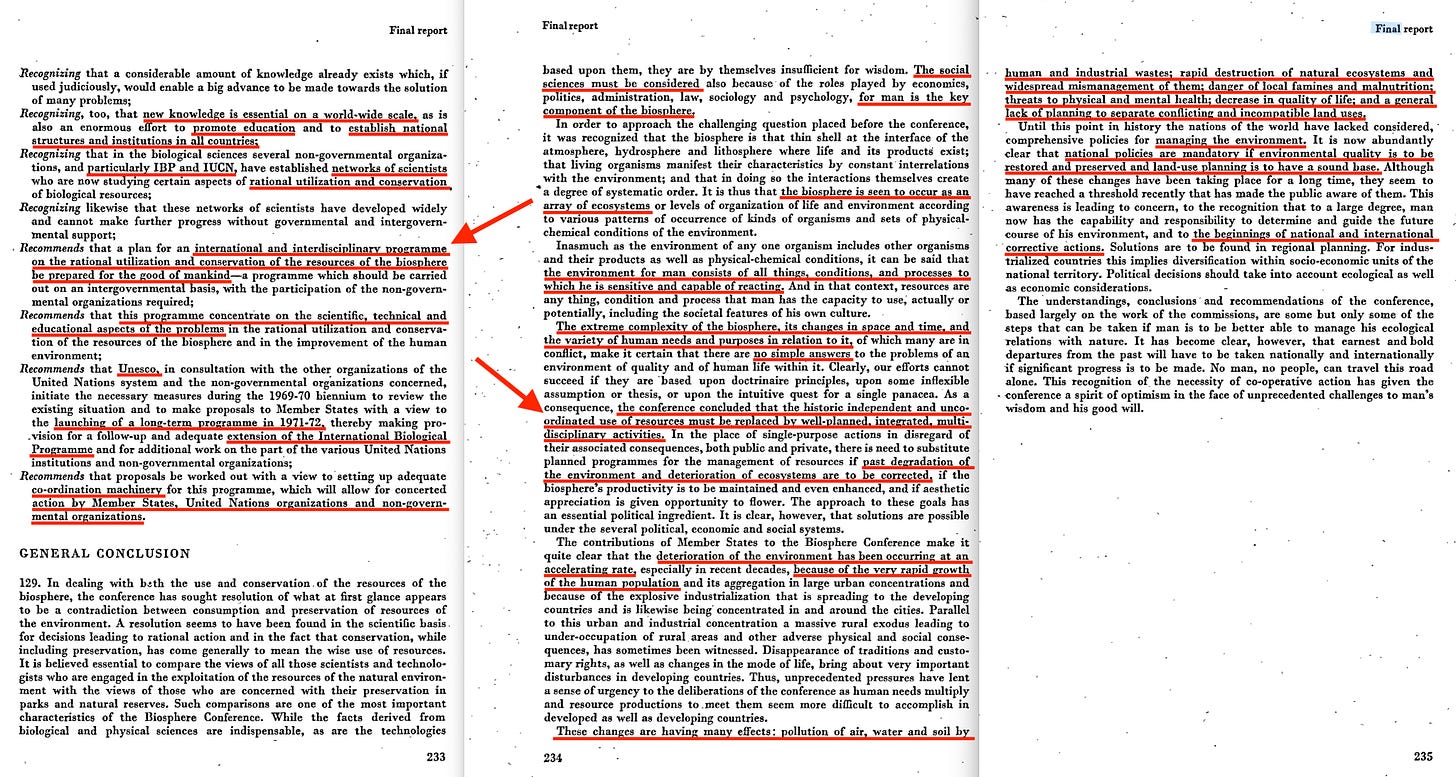

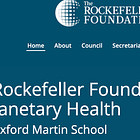

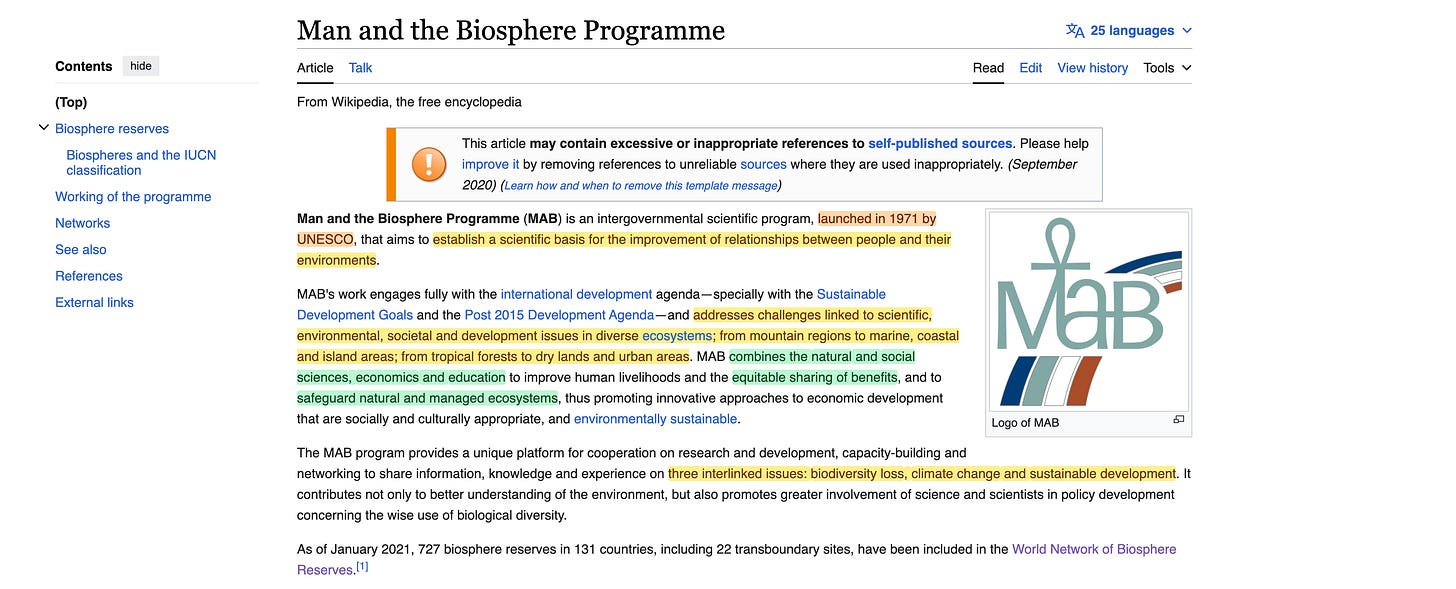
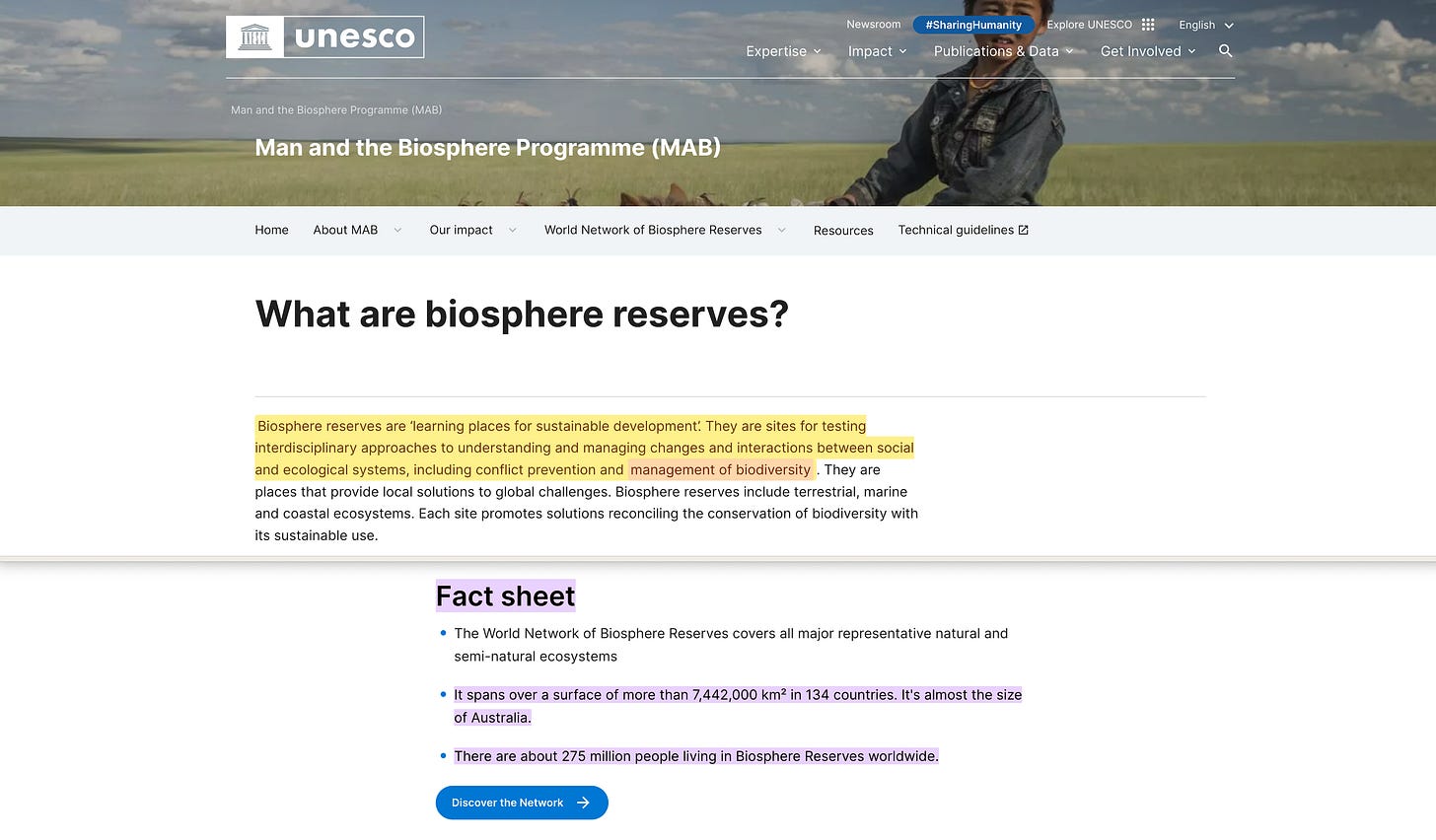

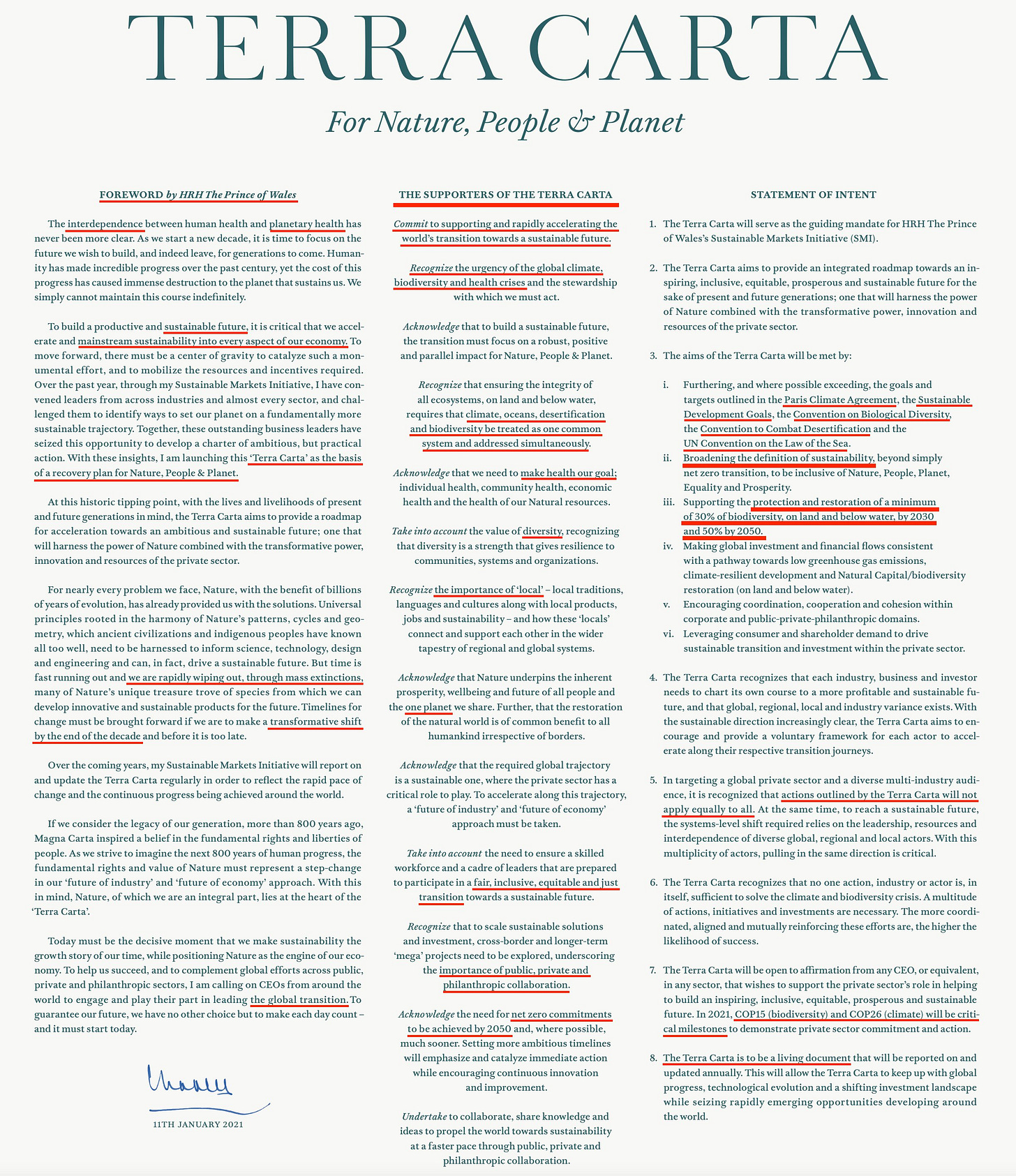


Outstanding write up. Thank you